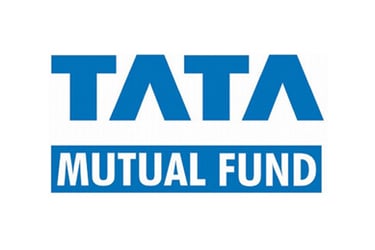info@uppalinvestments.com | 98159-84245 / 81686-75127
Mutual Funds
Mutual funds are investment vehicles that pool money from multiple investors to purchase securities such as stocks, bonds, and other assets. Managed by professional fund managers, mutual funds offer investors the benefit of diversification and expert management.
Equity Mutual Funds
Equity mutual funds primarily invest in stocks or equities of companies. These funds aim to generate high returns by investing in the equity market. Since stocks can be volatile, equity funds come with a higher level of risk but also have the potential for high rewards. They are ideal for investors with a long-term horizon and a higher risk tolerance.
Large-Cap Funds: Invest in large, established companies with a market capitalization of over ₹20,000 crores. They are relatively stable and less volatile compared to smaller companies.
Mid-Cap Funds: Invest in companies with a market capitalization between ₹5,000 crores and ₹20,000 crores. They offer a balance of growth potential and risk.
Small-Cap Funds: Invest in smaller companies with a market capitalization of less than ₹5,000 crores. These funds have the highest potential for growth but come with increased volatility.
Sectoral Funds: Focus on specific sectors such as technology, healthcare, or banking. While they can offer high returns if the sector performs well, they are riskier due to their concentrated nature.
Debt Mutual Funds
Debt mutual funds invest in fixed-income securities like government bonds, corporate bonds, or treasury bills. These funds are less risky compared to equity funds and are ideal for conservative investors looking for stable returns. Debt funds are suited for investors who want to generate income through regular interest payments rather than capital appreciation.
Liquid Funds: Short-term funds that invest in very short-duration instruments like treasury bills and call money. They are ideal for parking surplus cash and offer low returns with minimal risk.
Corporate Bond Funds: Invest in bonds issued by corporations. They offer higher returns than government bonds but come with a slightly higher level of risk.
Gilt Funds: Invest exclusively in government securities. They are considered safe investments and are ideal for risk-averse investors seeking stable returns.
Dynamic Bond Funds: Invest in bonds of varying durations and are managed actively to take advantage of changing interest rates.
Hybrid Mutual Funds
Hybrid mutual funds invest in a mix of equity, debt, and sometimes other asset classes, providing a balance of risk and return. They are suitable for investors looking for diversification within a single fund.
Balanced Funds: Invest in a mix of equity and debt, typically maintaining a 50-50 allocation.
Aggressive Hybrid Funds: Invest predominantly in equities (65-80%) and the rest in debt.
Conservative Hybrid Funds: Invest predominantly in debt (75-90%) and the rest in equities.
Taxation of Mutual Funds in India
Equity Mutual Funds
Short-Term Capital Gains (STCG): Gains from the sale of equity mutual fund units held for less than 12 months are taxed at 20%.
Long-Term Capital Gains (LTCG): Gains from the sale of equity mutual fund units held for more than 12 months are taxed at 12.5% if the gains exceed ₹1.25 lakh in a financial year.
Debt Mutual Funds
Short-Term Capital Gains (STCG): Gains from the sale of debt mutual fund units held for less than 24 months are taxed as per the investor's income tax slab.
Long-Term Capital Gains (LTCG): Gains from the sale of debt mutual fund units held for more than 24 months are taxed at 12.5% without indexation if acquired before April 1, 2023. For investments made after April 1, 2023, gains are taxed as per the investor's income tax slab.
Dividends
As per the amendments made in the Union Budget 2020, dividends offered by any mutual fund scheme are taxed in the hands of investors at their applicable income tax slab rates.
Withholding Tax
Resident Investors: Any mutual fund income or capital gains (either long-term or short-term) will be subject to a 10% withholding tax rate.
Non-Resident Investors (NRI): The withholding tax rate is 20%, but NRIs can benefit from tax treaties (Double Taxation Avoidance Agreements) that India has signed with other countries, potentially reducing the tax rate.
Investing in mutual funds can be a rewarding way to achieve your financial goals, provided you understand the different types of funds and their tax implications. Whether you are a conservative investor looking for stable returns or an aggressive investor seeking high growth, there is a mutual fund that suits your needs.
Empanelled Partners With All AMCs

































Brand logo of individual fund houses are copyrighted by their original owners and used here for reference only.















